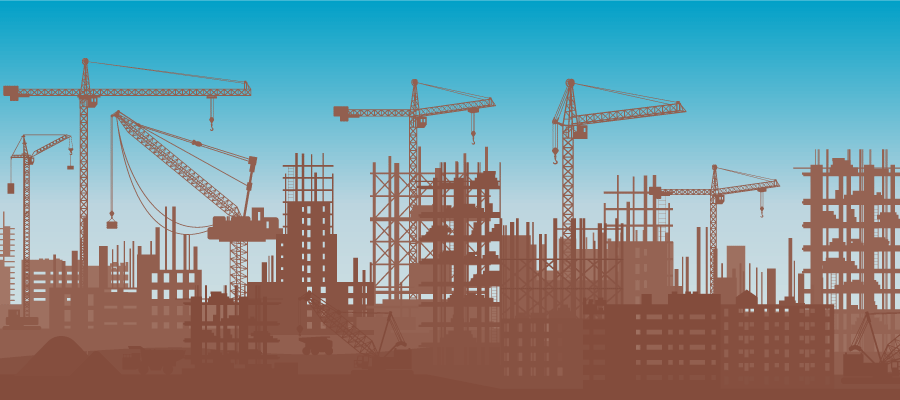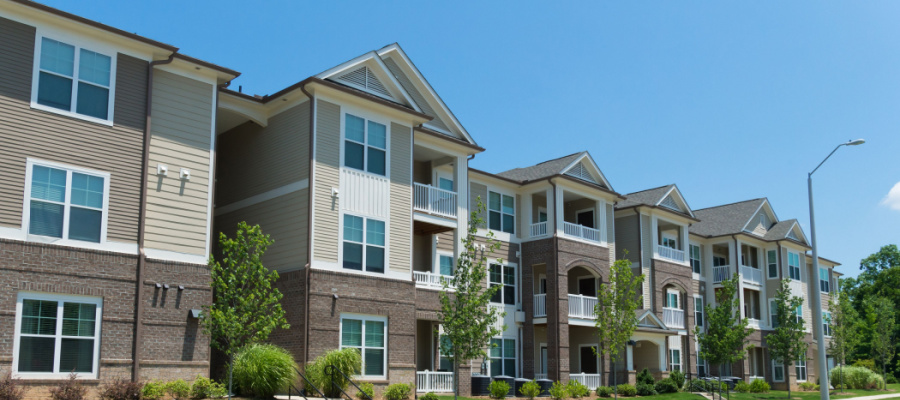Still so far from home: An update on BC’s 114,000 homes promise

There is a huge opportunity for the BC government, under new leadership, to address housing affordability by making major investments in non-market housing.
A growing number of commentators have recognized that the market alone cannot solve BC’s housing problem, particularly for low- to middle-income households. Major investments in non-market housing could include a much larger role in direct public investment in housing, including housing development, turning over public land to non-profits for development and providing low-interest financing for non-market projects.
This post updates previous research published last year tracking the 2017 NDP election promise to: “build 114,000 affordable rental, non-profit, co-op and owner-purchase housing units through partnerships over ten years. These homes will be a mix of housing for students, singles, seniors and families and will range from supported social housing to quality, market rental housing.”
The 114,000 still rhetorically matters within the BC government, although no comprehensive plan to achieve the target has been tabled. Some key steps since 2017 include:
- Housing people who are homeless, including measures in the 2017 budget update, the 2018 Supportive Housing Fund, and the 2019/2020 Homelessness Action Plan;
- Social housing in the 2018 Building BC housing plan (Community, Indigenous and Women’s Transition Housing Funds); and,
- Low-interest loans in support of student housing and via a Housing Hub program aimed at providing low-interest loans to projects involving other public and partners.
Table 1 shows the latest numbers based on 2022 budget briefing notes for the Minister of Housing. Some 5,483 units had been completed as of March 21, 2022 for programs that directly built new housing. The majority of these (4,229 of the total completed) are units aimed at the most vulnerable and homeless. Another 8,418 units are supported through loan programs, with the bulk of these (6,077 units) for student housing.
Altogether, some 13,901 units were completed as of March 31, 2022, or just over 12% of the 114,000 target. Another 6,737 units are in progress through direct funding grants and 1,756 through the Housing Hub loan program are listed as “in development” or “under construction.” When completed these units will bring the total to 22,394 units, or just under 20% of the 114,000 target. An additional 7,300 units are listed at a lower level of “initiated.”
Table 1: BC Housing new construction as of March 31, 2022

The 2018 Building BC initiative includes programs that most resemble the non-market housing we are seeking, including 14,350 units through the Community Housing Fund (CHF). As of March 31, 2022, only 711 CHF units had been completed, of which just over 400 units were completed in 2021/22. Some 8,100 units are indicated to be in some form of progress, although 4381 units are listed only as “initiated” rather than “under construction” or “in development.” Budget 2022 also added $100 million to the Community Housing Fund (not shown in the table), equivalent to 885 new units.
While the COVID-19 pandemic definitely had an adverse impact on construction, and it does take time to ramp up new projects, the CHF has been slow to produce housing units. This lack of movement is puzzling given the high-level rhetorical support from the government. This may reflect lengthy and expensive municipal zoning and permitting processes that are a barrier to moving non-profit housing projects forward.
A funding trickle from the BC government also appears to be a cause. While the 2018 Budget trumpeted more than $6 billion over 10 years towards the Building BC plan, only just over $2 billion has been expended as of the end of 2022/23.
A 2021 call for proposals by the Community Housing Fund received applications for 13,000 new units of housing but approved only 2,600 due to funding constraints. A case in point was made by Burnaby Mayor Hurley at the Union of BC Municipalities conference in September 2022 when he noted Burnaby had seven shovel-ready sites (including $12 million in land and $20 million from the city associated with millions in staff time and prep work) put forward to the CHF but only one–the smallest at 90 units—was funded while others were rejected.
Two other social housing streams, the Indigenous Housing Fund (IHF) and Women’s Transition Housing Fund (WTHF), have similarly been slow to complete projects, with only 388 units completed out of 1,750 for the IHF and 155 out of 1500 for the WTHF. Overall, the BC government’s performance is still far too modest to make a real dent in housing affordability.
The Community Housing Fund has been slow to produce housing units.
Not shown in the table is additional funding commingled with COVID-19 response spending for homelessness, including leasing spaces in hotels, motels and community centres as temporary shelters. The BC government also purchased nine hotels in Vancouver and Victoria at a cost of $221 million to house people experiencing homelessness and living in encampments. The 2022 BC budget committed ongoing support for some 3,000 people in shelters and other temporary spaces during COVID-19. It also announced $164 million over three years towards new “complex care” housing projects and services.
Low-interest loans for student housing and other housing partnerships have become a more central focus of the government’s housing agenda. With the rise in interest rates, continuing the provision of low-cost financing is key. This is particularly important for non-profits, but should also include private sector projects in exchange for meeting affordability criteria.
The much-promoted Housing Hub program, which “develops, facilitates, and supports partnerships across the housing sector to create market-based and affordable housing for middle-income households without the need for ongoing subsidies” has completed 2,341 units, with another 3,147 units in various stages of construction or development.
An increased ceiling of $2 billion for low-interest loans was allocated to the Housing Hub in the 2021 budget. With additional costs of building housing arising from higher interest rates the Housing Hub should continue to provide low-interest loans for new rental housing projects. This should prioritize non-profit development but could also include for-profit developments that meet (more stringent) affordability criteria.
Overall, there is still much work to be done to meet the government’s promised goal of 114,000 units. Some 80% of the target remains without any commitment about halfway through the 10-year timeline. Arguably, that target was insufficient. Extrapolating our research for Metro Vancouver, a bold BC-wide plan to build new dedicated, non-market affordable housing should aim for a quarter million units over the next decade, or 25,000 new non-market units per year.
With the rise in interest rates, the provision of low-cost financing is key.
The proposed BC Builds program holds promise for a next level coordinated approach to new non-market housing, as the CCPA’s Alex Hemingway outlines here. A non-profit model inherently reduces costs by cutting out developer profits and targeting new units on a break-even basis, rather than market rates. With non-market housing the stream of rental income will repay the initial up-front costs.
A ramp-up of the scale we describe above would benefit from a coordinated multi-government approach that can leverage economies of scale by employing modularized construction techniques and using replicable building templates for mid-rise, passive house multi-unit buildings. This would be accompanied by a dedicated construction workforce to support job security and stability.
Now would be a good time to commit to building out that supply with public sector backing as a strong counter-cyclical response to the current downturn in housing markets, while maintaining high and stable employment levels in the construction of new housing. All that is required is a significant new investment from the province.
This post is a part of an ongoing research project into affordable housing funded by the Vancouver Foundation.
Topics: Housing & homelessness, Municipalities

